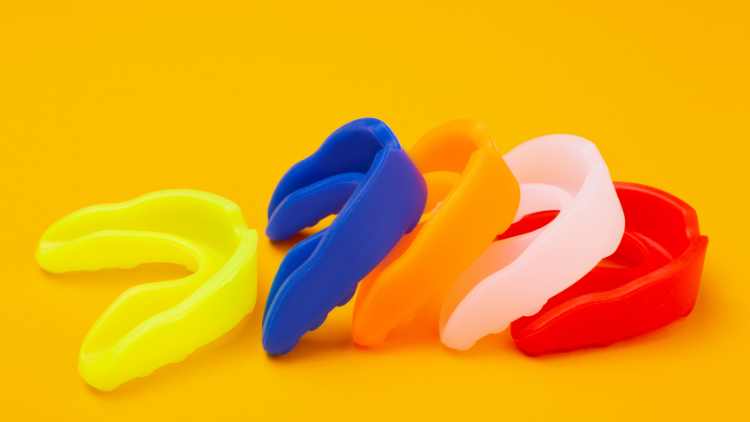
Mouthguards are essential tools in protecting dental health and preventing injuries to the mouth and jaw. From sports activities to sleep disorders, mouthguards play a crucial role in safeguarding our oral structures. In this blog, we’ll explore the various situations in which individuals may need a mouthguard and why they are essential for maintaining dental well-being.
Understanding Mouthguards
Mouthguards are protective devices worn over the teeth to shield them from injury during physical activities or to alleviate specific dental issues. They come in various types, including custom-fitted mouthguards made by dental professionals, boil-and-bite mouthguards available over-the-counter, and stock mouthguards that are ready to wear.
Sports and Athletic Activities
One of the most common uses of mouthguards is in sports and athletic activities. Whether it’s football, basketball, or even skateboarding, mouthguards are crucial for protecting the teeth and jaw from impact injuries. High-risk sports such as boxing, hockey, and martial arts particularly necessitate the use of mouthguards to prevent broken teeth, jaw fractures, and soft tissue damage.
Bruxism and Teeth Grinding
Bruxism, or teeth grinding, is a common condition that can lead to significant dental problems if left untreated. Many individuals grind their teeth during sleep or due to stress, which can cause tooth wear, jaw pain, headaches, and other issues. Mouthguards, worn during sleep, act as a barrier between the teeth, preventing damage and reducing the strain on the jaw muscles.
TMJ Disorders
Temporomandibular joint (TMJ) disorders can cause discomfort and dysfunction in the jaw joint and surrounding muscles. Mouthguards can help manage TMJ disorders by promoting proper jaw alignment, reducing jaw clenching, and alleviating symptoms such as jaw pain, clicking or popping sounds, and jaw stiffness.
Dental Procedures and Orthodontic Treatment
During certain dental procedures such as teeth whitening, dental implants, or orthodontic treatment, mouthguards may be necessary to protect the teeth and dental work from damage. Dentists may recommend wearing mouthguards during these procedures to prevent accidental injury and ensure the longevity of dental restorations.
Sleep Apnea and Snoring
For individuals suffering from sleep apnea or chronic snoring, specially designed mouthguards known as mandibular advancement devices (MADs) can be highly effective. These mouthguards work by repositioning the lower jaw forward during sleep, thereby keeping the airway open and reducing snoring and sleep-disordered breathing.
Children and Adolescents
Children and adolescents, especially those involved in sports or undergoing orthodontic treatment, can benefit greatly from wearing mouthguards. Mouthguards protect developing teeth and orthodontic appliances from damage and prevent injuries during physical activities. Parents should ensure their children wear properly fitted mouthguards to safeguard their dental health.
Conclusion
In conclusion, mouthguards are invaluable tools for protecting dental health and preventing injuries in various situations. Whether it’s on the sports field, during sleep, or undergoing dental procedures, mouthguards play a vital role in preserving the integrity of our teeth and oral structures. By recognizing the need for mouthguards in different scenarios and using them appropriately, individuals can maintain optimal dental well-being for years to come. Regain confidence in your smile and contact us today to schedule an appointment.

 Request an Appointment
Request an Appointment